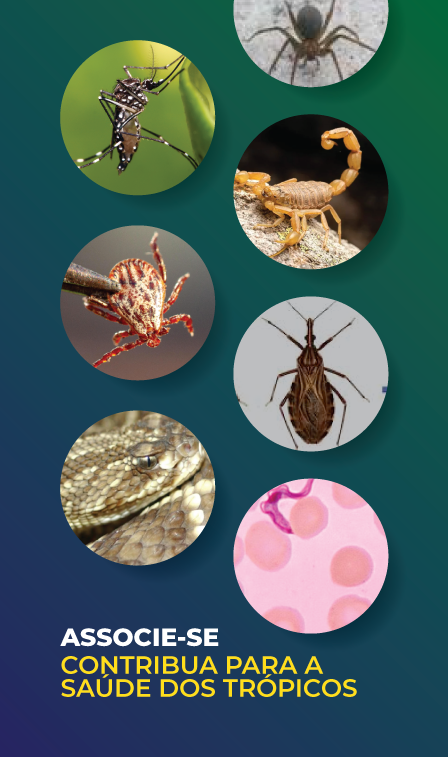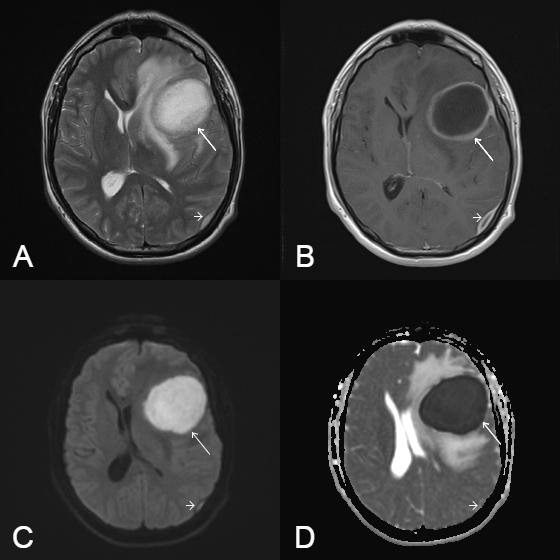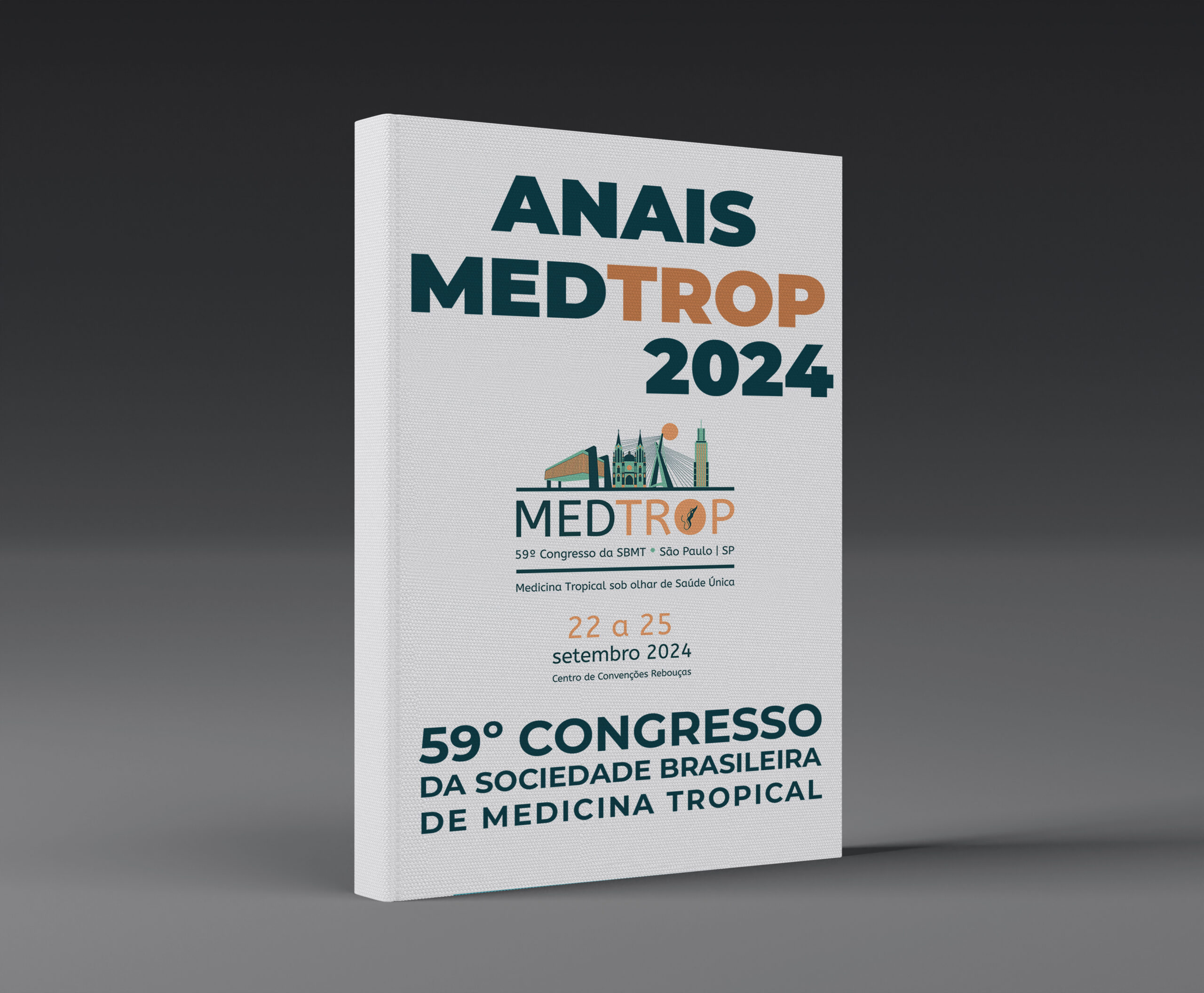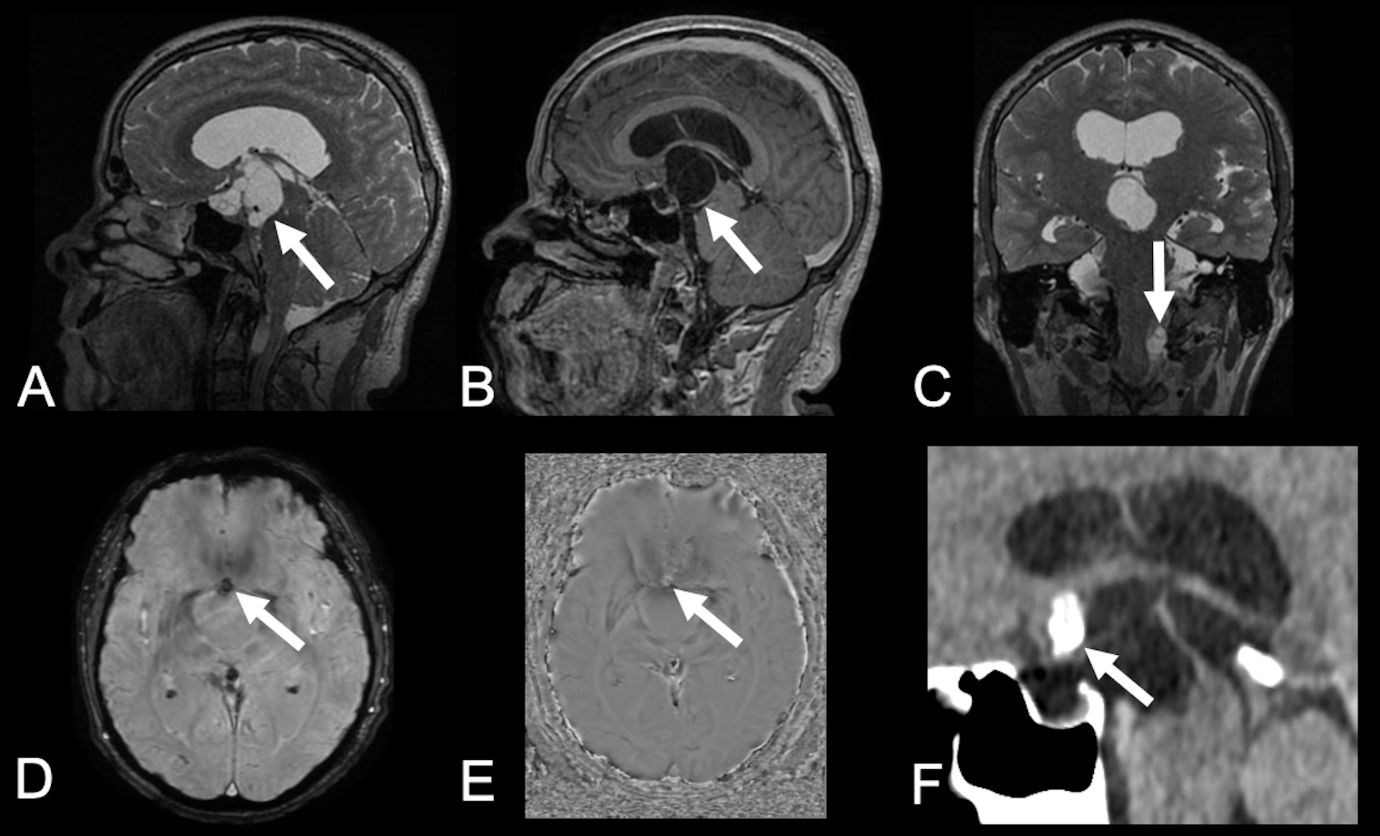
Novos tempos: Medicina Tropical para as cidades e mais alémNew times: Tropical Medicine for cities and beyond
13/10/2012Carlos Henrique Nery Costa
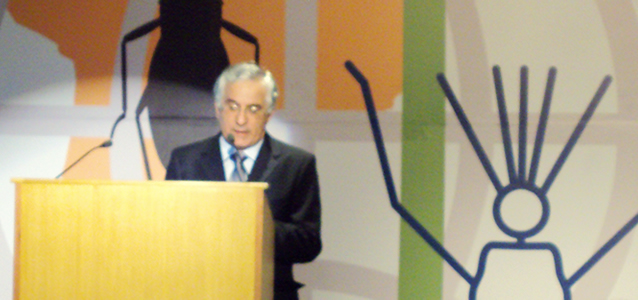
Medicina Tropical se dedica à maior parcela vulnerável da população mundial, e com atenção especial aos seus problemas de saúde que necessitam de mais investigações científicas e cuidados
Apesar da Medicina Tropical implicar, por definição, na ampla gama de problemas de saúde que ameaçam mais aos 40% da população mundial residente nos Trópicos, a Medicina Tropical está encolhendo. Esta maravilhosa ciência médica que lida com tantos campos, desde a amplidão dos Trópicos no seu sentido geográfico, passando pelas chamadas doenças negligenciadas, pelas doenças epidêmicas emergentes, bem como pelas doenças do “Terceiro Mundo, historicamente – mas não para sempre – atingindo as pessoas mais pobres, foi aprisionada no campo restrito de uma Parasitologia Tropical Aplicada. No entanto, nesta amplidão minguante, um quase – final, ao ponto de que essas sociedades têm sido chamada de sociedades agonizantes por alguns cientistas, a Medicina Tropical, como a Fênix mítica, pode renascer a partir de suas próprias cinzas nas cidades tropicais.
De fato, durante várias décadas do século XX, especialmente após a revolução verde gerada pela descoberta dos fertilizantes químicos, o colonialismo da Ásia e da África e as políticas globais de ajuste econômico para os países em desenvolvimento endividados, juntamente com o protecionismo do setor agrícola das nações desenvolvidas, as cidades tropicais foram invadidas por grupos de migrantes extremamente pobres, provenientes da agricultura familiar, cronicamente expostos a doenças endêmicas rurais. Esses posseiros pobres que se instalaram nos piores ambientes urbanos, nas favelas gigantescas e miseráveis, estão agora sob a ameaça de outros perigos, mais agudos, e provavelmente mais brutais. Muitos deles vivendo sem água potável, eletricidade, saneamento ou latrinas, ocupando habitações vulneráveis em áreas de deslizamento, contaminadas, pantanosas, ou em nenhum terreno – acima d’água apenas – sem qualquer segurança pública ou serviços de saúde, cercados por crime e violência.
Enquanto isso, a importância das doenças endêmicas rurais vem sendo progressivamente reduzida pelas próprias migrações que levaram ao esvaziamento do campo – apenas 15% da população da América Latina vive no campo. Sua importância também foi reduzida pela mudança da ecologia rural devido à exploração capitalista dos campos, e pelo desenvolvimento de novos medicamentos e vacinas. No entanto, para a tristeza da humanidade, as cidades tropicais, juntamente com suas enormes favelas, emergiram como um novo ambiente, permissivo e explosivo para o aparecimento de novas doenças e o ressurgimento de outros. Não mais as tribos distantes, as comunidades perdidas. Diante de nós, como um inferno dantesco, um dragão imbatível, estão as favelas miseráveis, onde, possivelmente, vive mais de metade da população tropical e mais de 90% da população de algumas das maiores cidades da América Latina, África e Sul da Ásia.
E assim, perto de nós, nos Trópicos, surgem novas doenças de novos agentes. Não só Plasmodium, Trypanosoma, Schistosoma. Juntam-se agora Aedes aegypti, tuberculose multirresistente, HIV, balas, motocicletas, fumaça, produtos químicos, incêndios, promiscuidade, a falta de privacidade, sujeira, medo. Este é o drama dos nossos miseráveis povos tropicais. Este é o desafio para uma Medicina Tropical para o futuro: adotar os Trópicos em sua totalidade, desde o charme, a importância e as vitórias das batalhas contra as doenças endêmicas rurais, até o enfrentamento do horror das favelas. Não só a aventura distante de salvar crianças de malária, mas a Medicina Tropical para salvar as crianças com a diarreia da sujeira urbana, e abordar a juventude drogada, sequestrada pelo tráfico para se tornarem traficantes e cadáveres jovens, ou de infância deformada, de oculto futuro, cercada por HIV e tuberculose, e, pior, à frente de nós, covardemente abandonada por nós, pelo Estado, pela inteligência mundial e pelas prioridades econômicas do mercado.
A Medicina Tropical para o futuro deve ampliar o seu raio de ação e envolver e, eventualmente, priorizar novas doenças tropicais urbanas, infecciosas ou não, incluindo e destacando as de causas externas, especialmente as doenças ligadas à pobreza urbana das favelas. Aqueles que se dedicam às causas dos povos tropicais devem reconhecer em si o mesmo espírito de seus heróis, como Charles Laveran, Ronald Ross e Carlos Chagas, que foram para pequenas vilas e áreas rurais para combater as doenças dos seres abandonados do fim do mundo, para agora lutar com audácia contra o recente e perverso drama urbano que se apresenta a nós, perto de nós, rugindo em nós, com o bafo em nós.
Pode parecer difícil propor tal mudança de foco para uma comunidade tradicionalmente dedicada a micróbios, vermes e vetores, de onde emergiram cruciais contribuições científicas, debates decisivos, e que levou a recomendações para as doenças infecciosas tropicais. Como introduzir temas como violência, acidentes, segurança, sexo, poluição, a uma comunidade de cultura infecciosa tradicional como são as nossas sociedades? Se a maioria de nós não somos psicólogos, urbanistas, economistas, sociólogos, especialistas em segurança, se não são cirurgiões, ortopedistas ou fisioterapeutas, ou como podem as sociedades de Medicina Tropical dedicarem-se a esses temas tão distantes de nossos treinamentos, tão amplos, multidisciplinares. É possível?
Eu acho que sim e que pode não ser que uma tarefa difícil. E eu defendo este ponto devido às características de Medicina Tropical, que já se dedicou e se dedica a doenças tropicais urbanas, como o cólera, a febre amarela, o HIV / AIDS, dengue, leptospirose, tuberculose, filariose e calazar, e para populações especiais como refugiados e populações indígenas vulneráveis, e para doenças não infecciosas como a doença falciforme, pênfigo foliáceo, endomiocardiofibrose e mortalidade materna. As sociedades de Medicina Tropical também já se dedicam a doenças de causas externas, como picadas e mordeduras, desnutrição, e com temas amplos, como habitações, desmatamento, construção de barragens e suas relações com o aparecimento de doenças infecciosas, e os efeitos da violência em populações deslocadas pelas guerras. Portanto, não será um salto tão grande ampliar o foco e olhar também para as causas de doenças urbanas que ocorrem principalmente nos trópicos, como a falta de saneamento básico, violência urbana, tráfico de drogas, poluição, acidentes de transporte, principalmente por motos, depressão e medo.
No entanto, para ser bem sucedida neste salto, a Medicina Tropical precisa de mais. Em primeiro lugar, precisamos deixar claro que a Medicina Tropical não é uma especialidade médica dedicada apenas a infecções tropicais. Medicina Tropical é muito mais. É um ramo da ciência. Uma disciplina que se dedica à maior parcela vulnerável da população mundial, e com atenção especial aos seus problemas de saúde que necessitam de mais investigações científicas e cuidados. Este é um conceito decisivo, para ampliar e aprofundar as ações da comunidade da Medicina Tropical. Mas, para lidar com tais complexos, multidisciplinares e intensos problemas sanitários e suas causas, é necessário ir além. É necessário atrair os cientistas e profissionais de saúde com formações acadêmicas distintas da nossa formação biomédica, como ilustrado por Rosinha Dias, a assistente social que ombreou seu marido na busca de soluções inteligentes para a transmissão da doença de Chagas, um problema de saúde profundamente associado a fatores econômicos, sociais, culturais e ecológicos.
Sim, é possível. Se as sociedades de Medicina Tropical forem capazes de ampliar o leque dos temas de suas revistas e mídias, se promoverem reuniões e congressos sobre os problemas de saúde tropicais urbanos, como a saúde das favelas, se agregarem temáticas não infecciosas na agenda de seus congressos, e se convidarem cientistas das muitas outras disciplinas relacionadas à saúde urbana tropical, elas vão ressurgir poderosas neste desafio deste ramo tão charmoso, complexo e belo da ciência. Desta maneira, a Medicina Tropical pode se tornar mais uma vez a grande mãe da medicina nos Trópicos, a grande indutora de saúde tropical, capaz de preparar uma grande luta para os interesses dos povos tropicais. Se fizermos isso, seremos nós mesmos, os membros presentes da Medicina Tropical de hoje, quem irá induzir este combate difícil, este desafio para o futuro. E mais importante, será uma atitude além da ciência, no reino do melhor que os seres humanos têm, que é o amor ao próximo.Carlos Henrique Nery Costa

Tropical Medicine is dedicated to the most vulnerable part of the worldwide population, with special attention to their health problems that need further scientific research and care
Although Tropical Medicine implies, by definition, the wide range of health problems that threaten over 40% of the world population residing in the Tropics, Tropical Medicine is shrinking. This wonderful medical science that deals with so many fields, from the vastness of the Tropics in its geographical sense, to the so called neglected diseases, the emerging epidemic diseases as well as diseases of the Third World, historically – but not forever – affecting the poorest people, was trapped in a narrow field of “Applied Tropical Parasitology”. However, this waning breadth, a near – end, to the point that these societies have been called agonized societies by some scientists, Tropical Medicine, like the mythical Phoenix can be reborn from its own ashes in tropical cities.
In fact, for several decades of the twentieth century tropical cities were invaded by extremely poor migrant groups, from family farms, chronically exposed to rural endemic diseases. This was especially so after the green revolution created by the discovery of chemical fertilizers, colonialism in Asia and Africa and global policies of economic adjustment for indebted developing countries, along with protectionism in the agricultural sector of developed nations. These poor squatters who settled in the worst urban environments, in gigantic and miserable slums, are now threatened by other more acute dangers, which are probably more brutal. Many of them live without clean water, electricity, sanitation or latrines, occupying vulnerable homes in areas that are prone to landslides, contaminated, swampy, or on any land – just above water – without any public safety or health services, surrounded by crime and violence.
Meanwhile, the importance of rural endemic diseases has been progressively reduced by the very migrations that led to the emptying of the countryside – only 15% of Latin Americas population lives in the countryside. Their importance was also reduced by the changing rural ecology due to capitalist exploitation of the fields, and the development of new drugs and vaccines. However, to the sorrow of mankind, the tropical cities, along with their huge slums, have emerged as a new environment, explosive and permissive for the emergence of new diseases and the resurgence of others. It is no longer about the distant tribes, the lost communities. There in front of us, like a Dantesque hell, an unslayable dragon, are the miserable slums, where, possibly, live more than half the tropical population and more than 90% of the population of some of the largest cities in Latin America, Africa and South Asia.
And so, close to us, in the Tropics, new diseases have emerged from new agents. Not only Plasmodium, Trypanosoma, Schistosoma. They are now joined by Aedes aegypti, Multiresistant TB, HIV, bullets, motorcycles, smoke, chemicals, fires, promiscuity, lack of privacy, dirt, fear. This is the drama of our miserable tropical people. This is the challenge for Tropical Medicine for the future: to take the Tropics in its entirety, from the charm, the importance of the battles and victories against endemic rural diseases, to face the horror of the slums. Not just the distant adventure of saving children from malaria, but Tropical Medicine for saving children with diarrhea caused by urban dirt, and dealing with the drug addled youths, kidnapped by trafficking to become dealers and young corpses, or deformed children, of unknown future, surrounded by HIV and tuberculosis, and worse, in front of us, abandoned by us, by the State, by the world intelligence and by the economic priorities of the market.
Tropical Medicine for the future must expand its scope of action and engage and, eventually, prioritize new urban tropical diseases, infectious or otherwise, including and highlighting the external causes, especially diseases linked to the urban poverty of the slums. Those who are dedicated to the causes of tropical peoples must recognize in themselves the same spirit of their heroes such as Charles Laveran, Ronald Ross and Carlos Chagas, who went to small towns and rural areas to combat diseases of abandoned beings at the end of the world, to now boldly fight against the recent and perverse urban drama that stands before, near to us, roaring at us, breathing upon us.
It may seem difficult to propose such a change of focus for a community traditionally devoted to microbes, worms and vectors, from which emerged crucial scientific contributions, decisive debates, and that led to recommendations for tropical infectious diseases. How does one introduce topics such as violence, accidents, safety, sex, pollution, to the traditional infectious culture of our societies? If most of us are not psychologists, urban planners, economists, sociologists, security experts, if we are not surgeons, orthopedists or physical therapists, how can Tropical Medicine societies devote themsleves to these topics so far from our training, so broad, multidisciplinary. Is it possible?
I think that it is, and it might not be that difficult. And I argue this point due to the characteristics of Tropical Medicine, which has already dedicated itself and is dedicated to urban tropical diseases such as cholera, yellow fever, HIV/AIDS, dengue, leptospirosis, tuberculosis, filariasis and leishmaniasis, and to special populations such as refugees and vulnerable indigenous populations, and to non-infectious diseases such as sickle cell disease, pemphigus foliaceus, endomyocardial fibrosis and maternal mortality. Tropical Medicine societies have also devoted themselves to the external causes of diseases such as insect bites and stings, malnutrition, and broad themes, such as housing, deforestation, dam construction and their relationships to the emergence of infectious diseases, and the effects of violence in populations displaced by war. Therefore, it will not be such a big jump to broaden the focus and also look at the causes of urban diseases that occur mainly in the tropics, such as lack of sanitation, urban violence, drug trafficking, pollution, traffic accidents, mainly by motorcycles, depression and fear.
However, to be successful in this leap, Tropical Medicine needs more. Firstly, we need to make it clear that Tropical Medicine is not a medical specialty dedicated solely to tropical infections. Tropical Medicine is a lot more. It is a branch of science. A discipline that is dedicated to the largest vulnerable share of the world population, and with special attention to their health problems, which need more care and scientific research. This is a crucial concept, to broaden and deepen the actions of the Tropical Medicine community. But to deal with such complex, multidisciplinary and intensive health problems and their causes, we have to go further. We must attract scientists and health professionals with academic backgrounds that are different to our biomedical training, as illustrated by Rosinha Dias, the social worker that aided her husband in finding smart solutions for the transmission of Chagas disease, a health problem profoundly associated with economic, social, cultural and ecological factors.
Yes, it is possible. If Tropical Medicine societies are able to broaden the range of issues in their magazines and media, if they promote meetings and conferences on tropical urban health problems, such as health of the slums, if they aggregate non-infectious themes on the agenda of their meetings, and invite scientists from many other disciplines related to tropical urban health, they will powerfully reemerge in the challenge of this so charming, beautiful and complex branch of science. Thus, Tropical Medicine can once more become the great mother of Medicine in the Tropics, a major inductor of tropical health, able to fight for the interests of tropical peoples. If we do this, it will be ourselves, the present members of today’s Tropical Medicine, who will lead this difficult fight, this challenge for the future. And more importantly, it will be an attitude beyond science, into the realm of the best that human beings possess, which is love of thy neighbor.…
**Esta reportagem reflete exclusivamente a opinião do entrevistado.**



